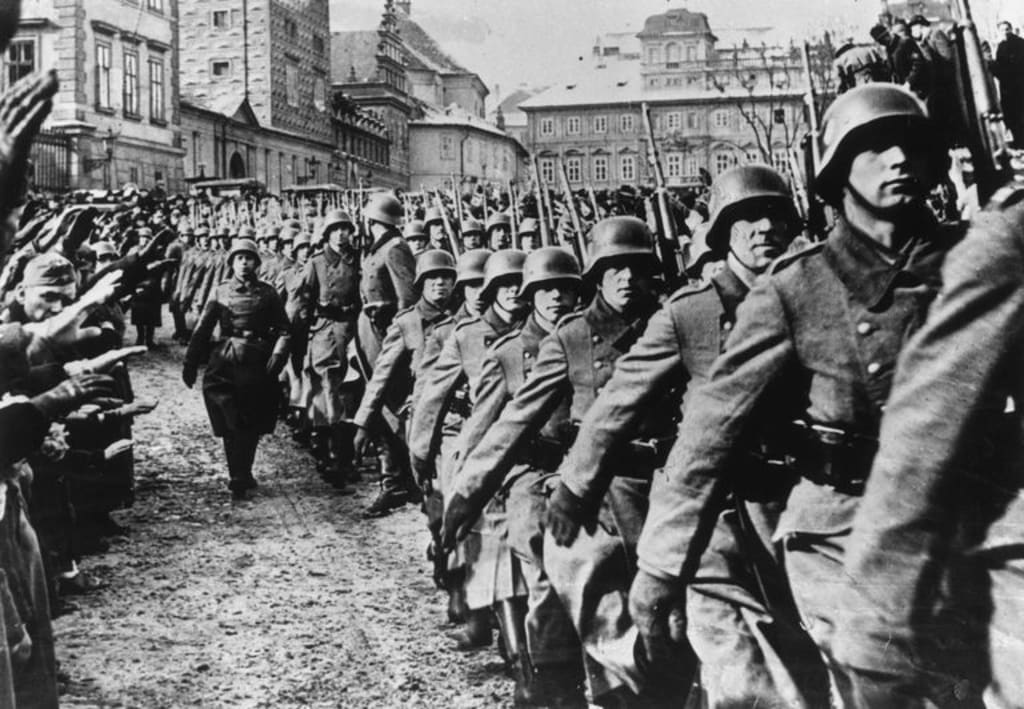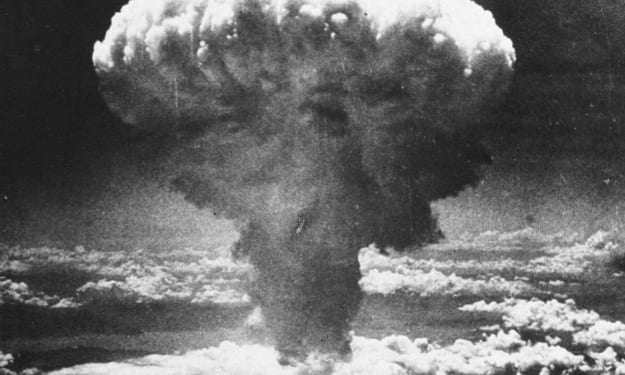Best World War II Memoirs
Want to know what it was like at D-Day? These World War II memoirs should be required reading for every history buff.

There are very few, if any, wars that are quite as fascinating as World War II. It was one of the deadliest wars in world history, filled with action-packed fighting and daring rescues. It was a war filled with stories that are both surreal and relatable at the same time.
Considering all the drama that happened with World War II and its aftermath, it's not surprising that this war is one of the most popular wars to read about. In fact, many writers use real memoirs from this time as inspiration for their own work.
Every single account of WWII has its own unique angle, story to tell, and struggle which shows how terrible (or wonderful) humankind can be. That's what makes these World War II memoirs must reads for anyone who wants to learn about military history or human nature.
Elie Wiesel is considered to be one of the most incredible writers to author World War II memoirs. Though he's written several books on the subject, most critics would agree that Night was his true magnum opus. It's also the reason why he won the Nobel Peace Prize.
Night is his account of what both he and his father experienced in concentration camps during the end of World War II. Though the book is short, the amount of anguish and horror he packs into the novel remains unmatched as probably the most notable and heartbreaking books about WWII ever written.
If you have ever wondered what can happen when the wrong people take power, you need to read what Elie Wiesel has to say.
When most people read World War II memoirs, they tend to pick memoirs from Allied soldiers or concentration camp survivors. It's understandable; people don't necessarily want to read about what Nazis had to say during their times committing crimes against humanity.
The Forgotten Soldier is a thought-provoking autobiography of a German soldier who was just a teenager when he was forced into the front lines on the Eastern Front. His book shows the terror they felt against Russian artillery, the faltering faith of soldiers, and the utterly human side of the enemy.
It's a very human way of seeing life as a German soldier—and that's a story you very rarely get to hear.
A lot of WWII memoirs deal with the chaos of a battlefield, the suffering of a concentration camp, or similarly violence-filled situations. Traudl Junge's view of the war was very different from most, since she was the last secretary to work under the most infamous leader of WWII, Adolf Hitler.
For the last two years of the war, Traudl followed Hitler into the "Wolf's Lair" at Berchtesgaden. She was the one who typed his speeches, wrote his schedule, and even attended to him during his last will.
She wrote Until the Final Hour to show what life was like as one of Hitler's main aides, and it was a book that was meant to be in high demand. It was her memoirs, complete with notes on it.
After the war ended, Traudl found out the full scope of the war crimes he committed. Though many journalists asked her for information about life with Hitler, she put aside the writing out of shame for what she experienced.
The memoirs were only recently published, in the early 2000s. It's an incredible read.
If You Survive is one of the better memoirs to be written by an American soldier who saw the full scope of war on a battlefield. He was present at Normandy, the Battle of the Bulge, as well as the very end of World War II—and he has some stories to tell.
George Wilson has an amazing way of bringing the good, the bad, and the ugly to the forefront as an American infantryman. Nothing is sugarcoated, and everything is laid brutally bare.
Admittedly, this is one of the most disturbing books about World War II. It will give you a lot of grief if you're not used to heavy subjects. However, that's exactly what makes it so impressive, not to mention relatable for those who survived the frontlines of any war.
Life on the grounds during major battles was terrifying, but one can only imagine the sheer pucker factor men who were sent up in the sky experienced.
George Webster was an American who flew a B-17 Bomber during World War II, and there's no shortage of action he saw while serving his country. Most people who battled in the air never made it back home, and his tales will explain what made flight so dangerous during this war.
Anyone who wants a different perspective on World War II's military history needs to pick up a copy of The Savage Sky. It will offer thrills and thought-provoking moments you won't soon forget.
When William Foley was only 18 years old, he got drafted into the military and sent into the frontline of Patton's Ghost Corps. The Corps were meant to break through the notoriously dangerous Sigfried Line—a crucial part of Hitler's turf.
Within a matter of days, Foley found himself in the middle of skirmishes that left 60 percent of his battalion dead. It only got worse from there, and his struggles will make you realize how incredibly brave soldiers were during World War II.
Like other first person accounts, Vision from a Foxhole isn't necessarily easy for people to read. There will be times you will need to put the book down, just so that you can compose yourself.
The Navajo Code Talkers were some of the most important people to aid in American military intelligence during World War II. This team of Native Americans were given the responsibility to issue out orders in the Navajo language to soldiers on the front line.
Many military experts believe that the Code Talkers were the only reason why America won the war. All other military codes were broken by the Japanese. Since the Japanese had little knowledge about Native American language, they couldn't crack the "code" they used.
Chester Nez was one of the first Code Talkers to be recruited by the United States, and he volunteered despite the discrimination he faced as a Navajo tribesman. His story spans over the course of his upbringing, the difficulties he had with fellow recruits, and how he and other Code Talkers helped lead America to victory.
If you've ever read World War II memoirs, or really any war memoir for that matter, you probably heard the phrase "brothers in arms." It's a phrase that was coined to convey the camaraderie that people have when they're on the battlefield.
William Guanere tells his own true story of two inseparable friends that were featured on HBO's Band of Brothers. They survived D-Day together, and then they remained inseparable until their deaths.
In a sea of memoirs that remain heartbreaking and wracked with depressing subjects, Brothers in Battle is a surprisingly uplifting book that will give you the warm fuzzies.
Dr. Michihiko Hachiya was the head of the Hiroshima Communications Hospital during the end of World War II—and you know what that means. If you don't, let me clarify: Hachiya was there when the bomb dropped on Hiroshima.
Because of what Hachiya saw, Hiroshima Diary might be one of the most nightmare-inducing World War II memoirs you'll ever read. The sheer devastation that the bomb unleashed on the Japanese people is placed in full view through this diary.
If you have a weak stomach, you might want to skip this book. However, if you want to experience one of the most engrossing reads you'll ever get your hands on, Hiroshima Diary is a great choice.
About the Creator
Ossiana Tepfenhart
Ossiana Tepfenhart is a writer based out of New Jersey. This is her work account. She loves gifts and tips, so if you like something, tip her!
Enjoyed the story? Support the Creator.
Subscribe for free to receive all their stories in your feed. You could also pledge your support or give them a one-off tip, letting them know you appreciate their work.






Comments
There are no comments for this story
Be the first to respond and start the conversation.